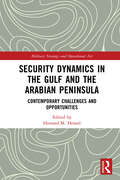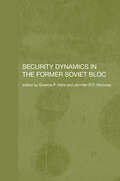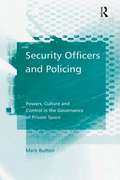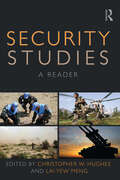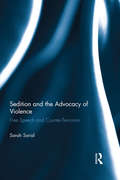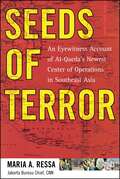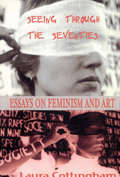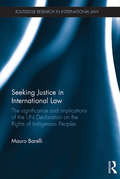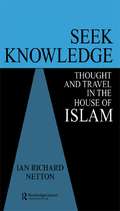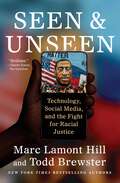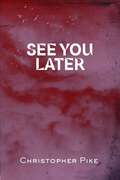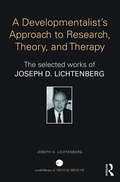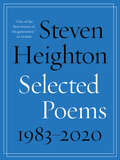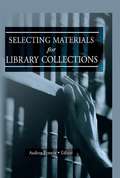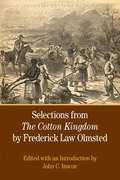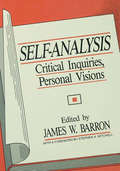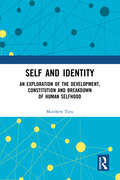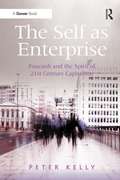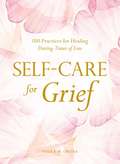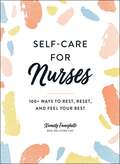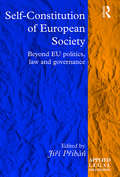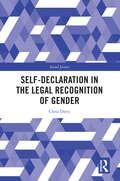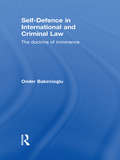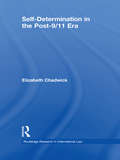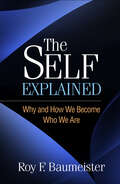Special Collections
Benetech’s Global Certified Accessible Titles
Description: Benetech’s GCA program is the first independent third-party EPUB certification to verify ebook accessibility. By creating content that is born accessible, publishers can meet the needs of all readers. Learn more: https://bornaccessible.benetech.org/
- Table View
- List View
Security Dynamics in The Gulf and The Arabian Peninsula
by Howard M. HenselThis book focuses on security dynamics in the contemporary Gulf and Arabian Peninsula. It highlights the development of the Gulf and the Arabian Peninsula, the contemporary challenges and opportunities confronting the principal powers that are active in this important sub-region, and analyzes and evaluates their policy responses. The various perspectives of the chapters all suggest that the stability and security of the Gulf sub-region is now and will continue in the future to be of vital importance to the global community. The chapters that compose the volume are organized into three thematic sections. Part I, ‘Security Challenges and Power Configurations in the Gulf and the Arabian Peninsula: The Historical Context’, comprises three chapters. Part II, consisting of seven chapters, is entitled, ‘Contemporary Security Challenges and Opportunities in the Gulf and the Arabian Peninsula.’ Part III, ‘Contemporary National Interests, Objectives, and Strategies of the Major Powers in the Gulf and the Arabian Peninsula’, comprises five chapters. Finally, the volume ends with a concluding chapter. Unfortunately, the contemporary unstable, heterogeneous Gulf sub-region is fraught with extremely serious and often urgent challenges that threaten the sub-region’s security. This volume helps to illuminate the nature of the sub-regional environment and the contemporary challenges and opportunities that confront the various powers that are active in the Gulf. It also contributes to a greater understanding of the interests, contemporary objectives, and strategies of those powers as they formulate and implement policies in response to the challenges and opportunities that they confront. This book will be of much interest to students of security studies, Middle Eastern politics and International Relations.
Security Dynamics in the Former Soviet Bloc
by Jennifer D. P. Moroney and Graeme P. HerdSecurity Dynamics in the Former Soviet Bloc focuses on four former Soviet sub-regions (the Baltic Sea region, the Slavic republics, the Black Sea region, and Central Asia) to explore the degree to which 'democratic security', which includes de-politicisation of, and civilian oversight of, the military, resolution of conflicts by international cooperation, and involvement in international organisations. It examines how far states in these regions have developed cooperative foreign and security policies towards their immediate neighbours and key Western states and organisations, explores the interplay between internal and external aspects of democratic security building, and uses case-study examples to show how inter-state bi-lateral and multi-lateral relations are developing.
Security Officers and Policing
by Mark ButtonThis volume examines how and to what extent security officers make use of`legal tools. The work identifies these tools and draws on two case-study sites to illustrate how security officers make use of them as well as how they fit in broader security systems to secure compliance. The study also examines the occupational culture of security officers and links them into the broader systems of security that operate to police nodes of governance. The book provides insights for researchers and policy-makers seeking to develop policy for the expanding private security industry.
Security Studies
by Yew Meng Lai and Christopher W. HughesThis reader brings together key contributions from many of the leading scholars in the field, offering students an informed overview of the most significant work in security studies. The editors chart the development of the key theoretical and empirical debates in security studies in the Cold War and post-Cold War periods, introducing the ideas of the most influential ‘past masters’ and contemporary thinkers on security in the UK, US and elsewhere. The book is divided into five areas: What is Security? Security Paradigms Security Dimensions and Issues Security Frameworks and Actors The Future of Security. In order to guide students through the issues, the book has a substantial critical introduction exploring the development of security studies, as well as introductory essays that provide an overview of each section, highlighting clearly how the readings fit together. Suggestions for further reading and key questions for discussion are also included. Security Studies is an invaluable resource for all students of security studies and international relations.
Sedition and the Advocacy of Violence
by Sarah SorialThis book employs the theoretical framework of ‘speech act theory’ to analyse current legislative frameworks and cases pertaining to sedition or the advocacy of violence and the issue of freedom of speech. An analysis of the relation between speech and action offers a promising way of clarifying confusion over the contested status of speech, which advocates violence as a political strategy. This account reflects an understanding of philosophical issues about both the nature of freedom and speech and how these issues can be applied to concrete legal problems. This approach will shed new light on the problems of the sedition laws and how they might be remedied by providing a conceptual account of the nature of speech and its relation to action. On the basis of J.L Austin’s account of verdictive and exercitive speech acts, it is argued that while all speech acts are ‘conduct’ in a narrow sense, not all of them have the power to produce effects. This philosophical account will have legal consequences for how we classify speech acts deemed to be dangerous, or to cause harm. It also suggests that because speech can evoke or constitute action or conduct in certain circumstances, modern versions of sedition laws might in principle be defensible, but not in their current form. On the basis of this account, it is argued that the harms caused or constituted by speech can be located in the authority of the speaker. Sedition and Violence Against the State: Free Speech and Counter-Terrorism will be of interest to students and scholars of philosophy of law and legal theory.
Seeds of Terror
by Maria RessaFor anyone wishing to understand the next, post-9/11 generation of al-Qaeda planning, leadership, and tactics, there is only one place to begin: Southeast Asia. In fact, such countries as the Philippines, Indonesia, Thailand, and Malaysia have been crucial nodes in the al-Qaeda network since long before the strikes on the Pentagon and World Trade Center, but when the allies overran Afghanistan, the new camps in Southeast Asia became the key training grounds for the future. It is in the Muslim strongholds in the Philippines and Indonesia that the next generation of al-Qaeda can be found. In this powerful, eye-opening work, Maria Ressa casts the most illuminating light ever on this fascinating but little-known "terrorist HQ." Every major al-Qaeda attack since 1993 has had a connection to the Philippines, and Maria Ressa, CNN's lead investigative reporter for Asia and a Filipino-American who has lived in the region since 1986, has broken story after story about them. From the early, failed attempts to assassinate Pope John Paul II and Bill Clinton to the planning of the 9/11 strikes and the "48 Hours of Terror," in which eleven American jetliners were to be blown up over the Pacific, she has interviewed the terrorists, their neighbors and families, and the investigators from six different countries who have tracked them down. After the Bali bombing, al-Qaeda's worst strike since 9/11, which killed more than two hundred, Ressa broke major revelations about how it was planned, why it was a Plan B substitute for an even more ambitious scheme aimed at Singapore, and why the suicide bomber recruited to deliver the explosives almost caused the whole plan to fall apart when he admitted he could barely drive a car. Above all, Ressa has seen how al-Qaeda's tactics are shifting under the pressures of the war on terror. Rather than depending upon its own core membership (estimated at three to four thousand at its peak), the network is now enmeshing itself in local conflicts, co-opting Muslim independence movements wherever they can be found, and helping local "revolutionaries" to fund, plan, and execute sinister attacks against their neighbors and the West. If history is any guide, al-Qaeda revisits its plans over and over until they can succeed -- and many of those plans have already been discovered and are here revealed, thanks to classified investigative documents uncovered by Ressa.
Seeing Through the Seventies
by Laura CottinghamIn recent years, Laura Cottingham has emerged as one of the most visible feminist critics of the so-called post-feminist generation. Following a social-political approach to art history and criticism that accepts visual culture as part of a larger social reality, Cottingham's writings investigate central tensions currently operative in the production, distribution and evaluation of art, especially those related to cultural production by and about women.Seeing Through the Seventies: Essays on Feminism and Art gathers together Cottingham's key essays from the 1990's. These include an appraisal of Lucy R. Lippard, the most influential feminist art critic of the1970's; a critique of the masculinist bias implicit to modernism and explicitly recuperated by commercially successful artists during the 1980s; an exhaustive analysis of the curatorial failures operative in the "Bad Girls" museum exhibitions of the early 1990s; surveys of feminist-influenced art practices during the women's liberationist period; speculations on the current possibilities and obstacles that attend efforts to recover lesbian cultural history; and an examination of the life, work and obscuration of the early twentieth-century French photographer Claude Cahun.
Seeking Justice in International Law
by Mauro BarelliToday human rights represent a primary concern of the international legal system. The international community’s commitment to the protection and promotion of human rights, however, does not always produce the results hoped for by the advocates of a more justice-oriented system of international law. Indeed international law is often criticised for, inter alia, its enduring imperial character, incapacity to minimize inequalities and failure to take human suffering seriously. Against this background, the central question that this book aims to answer is whether the adoption of the 2007 United Nations Declaration on the Rights of Indigenous Peoples points to the existence of an international law that promises to provide valid responses to the demands for justice of disempowered and vulnerable groups. At one level, the book assesses whether international law has responded fairly and adequately to the human rights claims of indigenous peoples. At another level, it explores the relationship between this response and some distinctive features of the indigenous peoples’ struggle for justice, reflecting on the extent to which the latter have influenced and shaped the former. The book draws important conclusions as to the reasons behind international law’s positive recognition of indigenous peoples’ rights, shedding some light on the potential and limits of international law as an instrument of justice. The book will be of great interest to students and scholars of public international law, human rights and social movements.
Seek Knowledge
by Ian Richard NettonExplores various facets of the Islamic search for knowledge, with essays on aspects of Thought or Travel.
Seen and Unseen
by Todd Brewster and Marc Lamont HillA riveting exploration of how the power of visual media over the last few years has shifted the narrative on race and reignited the push towards justice by the author of the &“worthy and necessary&” (The New York Times) Nobody Marc Lamont Hill and the bestselling author and acclaimed journalist Todd Brewster.With his signature &“clear and courageous&” (Cornel West) voice Marc Lamont Hill and New York Times bestselling author Todd Brewster weave four recent pivotal moments in America&’s racial divide into their disturbing historical context—starting with the killing of George Floyd—Seen and Unseen reveals the connections between our current news headlines and social media feeds and the country&’s long struggle against racism.For most of American history, our media has reinforced and promoted racism. But with the immediacy of modern technology—the ubiquity of smartphones, social media, and the internet—that long history is now in flux. From the teenager who caught George Floyd&’s killing on camera to the citizens who held prosecutors accountable for properly investigating the killing of Ahmaud Arbery, ordinary people are now able to reveal injustice in a more immediate way. As broad movements to overhaul policing, housing, and schooling gain new vitality, Seen and Unseen demonstrates that change starts with the raw evidence of those recording history on the front lines.In the vein of The New Jim Crow and Caste, Seen and Unseen incisively explores what connects our moment to the history of race in America but also what makes today different from the civil rights movements of the past and what it will ultimately take to push social justice forward.
See You Later
by Christopher PikeFrom the New York Times bestselling author of The Midnight Club—soon to be an original Netflix series!Mark has just fallen in love for the first time. The girl&’s name is Becky and unfortunately for Mark, she already has a boyfriend. Mark tries his best, but he is unable to win Becky for himself—until he meets young couple Vincent and Kara and strange things start to happen.
Selected Papers of Joseph Lichtenberg
by Joseph LichtenbergThe World Library of Mental Health celebrates the important contributions to mental health made by leading experts in their individual fields. Each author has compiled a career-long collection of what they consider to be their finest pieces: extracts from books, journals, articles, major theoretical and practical contributions, and salient research findings. Leading psychoanalyst Joseph D. Lichtenberg is one of the most experienced and best respected psychoanalysts working in the US at present. In A Developmentalist's Approach to Research, Theory, and Therapy, he provides the reader with an opportunity to track the development of his conceptions in three realms of psychoanalysis: Infant studies and developmentalist perspectives on the life cycleTheoretical contributions to self-psychology Motivational clinical contributionsJoseph Lichtenberg is a hugely influential name within US Psychoanalysis circles; this is the first collection of the seminal papers from his very long and distinguished career.
Selected Poems 1983–2020
by Steven HeightonThis collection of new and previously published poems by Steven Heighton, author of the Governor General’s Literary Award winner The Waking Comes Late, showcases a defining lyric poet of his generation.Selected Poems 1983–2020 is Steven Heighton’s seventh volume of poetry and the first since his Governor General’s Literary Award–winning collection, The Waking Comes Late. Incorporating a grouping of previously unpublished poetry and a selection of key poems from his six previous acclaimed collections, this timely volume showcases a generational talent whose work has been described by critics as “exhilarating,” “genuine,” and “arrestingly beautiful.”Heighton’s debut collection, Stalin’s Carnival,won the Gerald Lampert Award for Best First Book of Poetry in 1990. Subsequent books, which include bestselling novels, essays, and critical writings, confirmed Heighton as an exciting and important voice in Canadian letters. Heighton’s poetry is recognised for its technical skill and musicality, its erudition, and its empathy and unvarnished emotion.
Selecting Materials for Library Collections
by Linda S KatzStrategies and tools to help you plan, build, and maintain your library collection! Selecting Materials for Library Collections takes you step-by-step through the process of planning, building, and maintaining a quality library collection. This up-to-date guide addresses the interests and concerns of academic and public libraries with expert advice on budgets, policies, and planning. The book examines print, non-print, and Internet selection resources, including the OCLC WorldCat Database and ACQNET-L. You&’ll find valuable information you can apply right away to help you keep any collection relevant and up-to-date! Selecting Materials for Library Collections provides the tools you need to keep your library collection current. Seasoned experts share their thoughts on how to analyze your users&’ expectations and then provide them with the materials they need. The contributors also examine the selection aids that they use in their own acquisitions work and then look at how to achieve a balanced collection that efficiently serves their clients&’ needs. Supplementary reading lists and extensive bibliographies provide you with additional resources. Selecting Materials for Library Collections presents the latest information on: using print, non-print, and Internet selection resources such as OCLC WorldCat database and ACQNET-L initial collection assessment and decision making collection tool evaluations acquiring international core titles the New Thought movement approval plansset-up, maintenance, and evaluation the newest technology for media selection specialized library collections in music, art, business, economics, health, sports, leisure, and more
Selections from The Cotton Kingdom by Frederick Law Olmsted
by John InscoeSelections from The Cotton Kingdom by Frederick Law Olmsted
Self-Analysis
by James W. BarronSelf-Analysis is a fascinating reprise on the mode of disciplined self-inquiry that gave rise to psychoanalysis. From Freud's pioneering self-analytic efforts onward, self-analysis has been central to psychoanalytic training and psychoanalytic practice. Yet, only in recent years have analysts turned their attention to this wellspring of Freud's creation. The contributors to Self-Analysis represent diverse theoretical perspectives, but they share a common appreciation of the importance of self-analysis to the analytic endeavor. Their papers encompass systematic inquiries into the capacity for self-analysis, examples of self-analysis as an aspect of clinical work, and personal reflections on the role of self-analysis in professional growth. Among the questions explored: What do we mean by self-analysis? To what extent and under what conditions is self-analysis possible? How does it differ from ordinary introspection? What are the developmental antecedents of the capacity for self-analysis? What is the role of the "other" in self-analysis? What are the relationships among self-analysis, writing, and creativity? As Barron observes, the contributors to the book "grapple with the formidable ambiguities of self-analysis without either idealizing or devaluing its potential." What emerges from their effort is not only an illuminating window into the psychoanalyst's subjectivity as a fact of clinical life, but a far-reaching exemplification of the ways in which self-understanding is always a constitutive part of our understanding of others.
Self and Identity
by Matthew TieuWhat is a self? What does it mean to have selfhood? What is the relationship between selfhood and identity? These are puzzling questions that philosophers, psychologists, social scientists, and many other researchers often grapple with. Self and Identity is a book that explores and brings together relevant ideas on selfhood and identity, while also helping to clarify some important and long standing scientific and philosophical debates. It will enable readers to understand the difference between selves in humans and other animals, and the different selves that we come to possess from when we are born to when we become old. It also explains how and why the self might break down due to mental illness, thereby providing insight into how we might treat illnesses such as dementia and depression, both of which are conditions that fundamentally affect our selfhood. Taking an important step towards clarifying our understanding of human selfhood and applying it to mental illness, this book will be of great interest to researchers and postgraduate students exploring philosophical questions of selfhood, as well as those examining the connection to clinical disorders.
The Self as Enterprise
by Peter KellyTwenty first century, flexible capitalism creates new demands for those who work to acknowledge that all aspects of their lives have come to be seen as performance related, and consequently of interest to those who employ them (or fire them). At the start of the 21st century we can identify, borrowing from Max Weber, new work ethics that provide novel ethically slanted maxims for the conduct of a life, and which suggest that the cultivation of the self as an enterprise is the life-long activity that should give meaning, purpose and direction to a life. The book provides an innovative theoretical and methodological approach that draws on the problematising critique of Michel Foucault, the sociological imagination of Zygmunt Bauman and the work influenced by these authors in social theory and social research in the last three decades. The author takes seriously the ambivalence and irony that marks many people’s experience of their working lives, and the demands of work at the start of the 21st century. The book makes an important contribution to the continuing debate about the nature of work related identities and the consequences of the intensification of the work regimes in which these identities are performed and regulated. In a post global financial crisis (GFC) world of sovereign debt, austerity and recession the author’s analysis focuses academic and professional interest on neo-liberal injunctions to imagine ourselves as an enterprise, and to reap the rewards and carry the costs of the conduct of this enterprise.
Self-Care for Grief
by Nneka M. OkonaProcess your grief, protect your mental health, and find moments of happiness with these 100 self-care activities specifically designed for difficult and distressing situations.When faced with loss or trauma, the grief can oftentimes feel overwhelming. It can feel difficult, if not impossible, to focus your attention elsewhere. And yet, during hard times is the perfect time to look inwards for support and practice self-care. Tuning in to your personal needs and taking the time to create a thoughtful self-care practice can make all the difference in moving forward in a healthy way. In Self-Care for Grief, you&’ll find 100 self-care activities that are specifically designed to help you protect your mental health, even while grieving. You&’ll find useful activities like: -Cooking to honor your loss -Practicing saying &“No&” -Naming your emotions -And many more No matter what the circumstances are, Self-Care for Grief has the activities you need to de-stress, stay calm, and even find moments of joy in the most challenging of times.
Self-Care for Nurses
by Xiomely FamighettiTake care of your patients by taking care of yourself with these 100 self-care activities specifically designed to help nurses reduce stress, feel their best—and ready to make a difference!There&’s no doubt about it: today&’s healthcare workers have a lot on their plates. Between balancing the needs of your patients and giving your all to support your coworkers, getting burnt out and overwhelmed is a real risk. So how do you make sure you take time for yourself to recharge? With Self-Care for Nurses, you&’ll find 100 activities specifically designed to help you relax, take a break, and feel reenergized. Whether you need a quick pick-me-up in the middle of your shift or are looking for some new ways to unwind after the workday is over, you&’ll find helpful solutions like: -Writing a list of your accomplishments -Practicing yoga -Learning how to ask for help -And much more! Whether you&’re a new nurse or a seasoned veteran, self-care is important for all. Start your nursing self-care practice—today!
Self-Constitution of European Society
by Jiří PřibáňRecent social and political developments in the EU have clearly shown the profound structural changes in European society and its politics. Reflecting on these developments and responding to the existing body of academic literature and scholarship, this book critically discusses the emerging notion of European constitutionalism, its varieties and different contextualization in theories of EU law, general jurisprudence, sociology of law, political theory and sociology. The contributors address different problems related to the relationship between the constitutional state and non-state constitutionalizations and critically analyze general theories of constitutional monism, dualism and pluralism and their juridical and political uses in the context of EU constitutionalism. Individual chapters emphasize the importance of interdisciplinary and socio-legal methods in the current research of EU constitutionalism and their potential to re-conceptualize and re-think traditional problems of constitutional subjects, limitation and separation of power, political symbolism and identity politics in Europe. This collection simultaneously describes the EU and its self-constitution as one polity, differentiated society and shared community and its contributors conceptualize the sense of common identity and solidarity in the context of the post-sovereign multitude of European society.
Self-Declaration in the Legal Recognition of Gender
by Chris DietzSelf-Declaration in the Legal Recognition of Gender examines the impact of legislation premised upon the principle of ‘self-declaration’ of legal gender status. Existing doctrinal and comparative analyses have tended to come out strongly in favour of, or against, self-declaration. This book offers a socio-legal alternative which focuses on how self-declaration is experienced, on an embodied level, by trans and gender diverse people. It presents research conducted in Denmark, which became the first European state to adopt self-declaration in June 2014. By analysing Danish law through a Foucauldian framework which brings together socio-, feminist, and trans legal scholarship on embodiment and jurisdiction, the book offers the first empirically based and theoretically informed analysis of self-declaration. It draws upon legal consciousness, affect theory, vulnerability, and governmentality literatures to argue that the jurisdictional boundaries which existed between law and medicine were maintained throughout the reform process. This limited the impact of the legislation, enabling access to health care to be restricted in the same year in which amending legal gender status was liberalised. As the list of states that have adopted self-declaration increases, this intervention offers activists and policymakers insights which might shape how they respond to similar reform proposals in the future. A timely and important assessment, this book will appeal to researchers and practitioners working in trans, gender, feminist legal, and socio-legal studies.
Self-Defence in International and Criminal Law
by Onder BakirciogluDrawing from scholarship across law, history, politics and philosophy, Self-Defence in International and Criminal Law provides a broad and interdisciplinary approach to the doctrine of self-defence in both domestic criminal and international law. It focuses on the requirement of imminence, which deals with the question of when individuals or States may legitimately resort to defensive force against a serious danger or harm. In both national and international law the imminence requirement, if strictly applied, renders any defensive measure taken in anticipation of a would-be attack illegal. Recently, however, attempts have been made to relax the temporal requirement of the self-defence doctrine (imminence) with a view to allowing individuals or States to employ deadly force to arrest an anticipated threat when they ‘believe’ that using ‘pre-emptive’ lethal force would be the only way to thwart an expected harm. In domestic criminal law, it has been argued that it is necessary to relax the rule of imminence in domestic violence cases where women employ lethal force against their abusive partners when there is no imminent threat to justify defensive force. At the international level, while there has long been controversy as to the justifiability of pre-emptive force in non-confrontational settings, following the September 11 attacks, the Bush Administration’s ‘war on terror’ policy radically shifted the focus from the notion of anticipation to that of prevention, making it clear that, if necessary, it would invoke unilateral force against emerging threats before they are fully formed. The book surveys the roots, role, rationale, and objectives of self-defence and questions whether the requirement of imminence should be removed from the traditional contours of the self-defence doctrine in national and international law.
Self-Determination in the Post-9/11 Era
by Elizabeth ChadwickThis book discusses the increasing tendency in certain government quarters to incorporate struggles by peoples for their self-determination into the wider anti-terrorist agenda of the post-9/11 era. This tendency distorts the laws of armed conflict and of peace alike. As inter-state anti-terrorist co-operation becomes more extensive, the transaction costs of international peace and security between states increase. Modes of domestic state governance are left increasingly to the vagaries of inter-state non-interference in the domestic affairs of each other. The ‘war on terror’ and an increasingly strict, domestic state law-and-order approach to silence political opponents increases the dangers for civilians, eliminates rights, and generates suspect communities. At the same time, public institutions and private corporations are harnessed into the mechanics of a broad project of prevention and control. Distinctively, the book considers the impact of the recent ‘war on terror’ on the politics of the self-determination of peoples. It draws together issues related to governmental forceful action, an increasing intolerance towards non-state violent acts, the content of international and regional codifications, expansions in state discretion, the encroachment of surveillance powers, and the interaction and overlap between intelligence and law enforcement agencies. Self-Determination in the Post-9/11 Era will be of interest to students and scholars of public international law, criminology, comparative criminal justice, terrorism and national security, politics, international relations, human rights, governance and public policy.
The Self Explained
by Roy F. BaumeisterThe idea of the self is immediately familiar to everyone, yet elusive to define and understand. From pioneering researcher Roy F. Baumeister, this volume synthesizes a vast body of knowledge to provide a panoramic view of the human self--how it develops and functions, why it exists, and what problems it encounters on the journey through life. What are the benefits of self-knowledge, and how attainable is it? Do we have one self, or many? What is the relationship of self and society? In 28 concise chapters, Baumeister explains complex concepts with clarity and insight. He reveals the central role played by the self in enabling both individuals and cultures to thrive.
